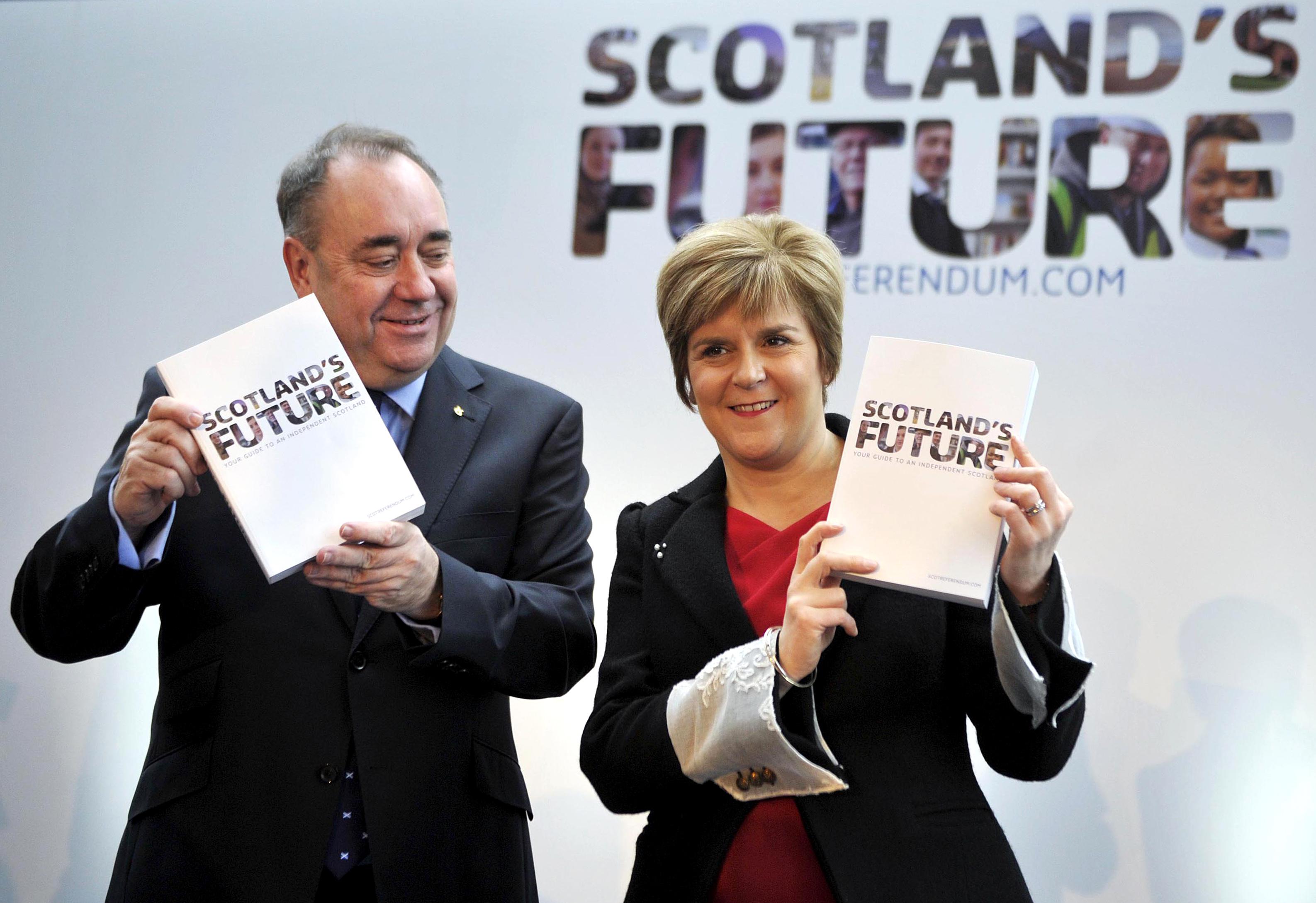In about 10 months, Scottish voters will head to the polls to vote on an independence referendum. First Minister Alex Salmond, of the pro-independence Scottish Nationalist Party, today released a 670-page blueprint explaining exactly what a post-independence Scotland would look like.
An independent Scotland would keep the pound and, like Australia or Canada, maintain its allegiance to Queen Elizabeth as head of state. It would collect its own taxes, set its own foreign policy, and—perhaps surprisingly—it would have its own defense forces, including land, naval, and air units. However, British nuclear submarines would be removed from Scotland’s base in the country. British Prime Minister David Cameron, who opposed Scottish independence, has used the Scottish-based Trident nuclear deterrent system as a talking point for maintaining Scotland’s place in the United Kingdom.
The SNP also argues that there would be no reason to raise taxes if Scotland broke away, pointing out that Scots would no longer have to pay for the British nuclear arsenal. Scotland also has abundant offshore oil and gas reserves and says it will set up a sovereign wealth fund with the revenue.
The SNP maintains that an independent Scotland would be a member of the European Union as an independent entity, though EU leaders haven’t exactly agreed to this. Countries like Spain, which doesn’t want Catalonia getting any ideas, would presumably be opposed to an independent Scotland simply inheriting EU membership.
When I spoke with Salmond last year, he argued that while many expected nationalists movements to fade away under the open borders and common market of the European Union, the system actually makes it easier for potential countries like his to stand on their own by eliminating the threats of outside aggression and easing access to international markets.
Polls still show most Scottish voters opposing independence, so the SNP has some ground to make up. The New York Times notes that in one effort to reassure a skeptical public, the blueprint makes clear that they will not lose their favorite BBC shows.
A new Scottish Broadcasting Service would replace the British Broadcasting Corporation, but some programs with a strong following, including the “EastEnders” soap opera and the “Strictly Come Dancing” contest, would continue to be broadcast.
If I were David Cameron, I’d say I was just handed a bargaining chip! No nuclear submarines, no EastEnders.
